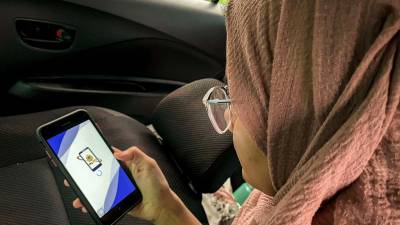PETALING JAYA: Nearly 300 government apps are competing for Malaysians’ attention and experts warn that instead of convenience, the proliferation of platforms has led to duplication, confusion and distrust.
Figures on the GAMMA.my portal show that 125 agencies have rolled out digital services, often overlapping in purpose.
The portal, short for the Gallery of Malaysian Government Mobile Applications, was developed by government agencies and is managed by the National Digital Department.
It serves as a central repository, allowing citizens to download official apps securely.
Last month, the government launched MyGOV Malaysia, a mobile app and digital gateway intended as a one-stop platform integrating services such as passport renewal, driving licence management, healthcare appointments and financial aid applications.
But experts caution that the real challenge is not creating another all-in-one app, but addressing deeper issues of governance, trust and communication.
Universiti Kebangsaan Malaysia (UKM) digital economy expert Dr Stephanie H.W. Chuah said users already juggle multiple apps serving similar functions.
“There are three different apps for vehicle and road user services – MyJPJ, MyEG and Touch ’n Go eWallet, while parking apps such as MBSA, SmartSelangor, FlexiParking and JomParking add further layers of duplication.
“Some of MySejahtera’s features overlap with MyUBAT, which lets users apply for pharmacy value-added services, and RekodSaya, which allows them to manage and share health records.
“Instead of fragmenting services across countless apps, the government should focus on a few high-value, frequently used platforms in healthcare, transport and payments, then integrate others gradually,” she said.
Chuah stressed that integration is as much about governance as technology.
“Each app is tied to a ministry’s budget and performance targets, so agencies may resist merging for fear of losing autonomy, visibility and credit. Integration is further complicated by legacy systems that are difficult to align.
“At the same time, citizens worry about surveillance risks, especially since the Personal Data Protection Act does not cover government agencies,” she added.
UKM digitalisation and IR4.0 specialist Prof Dr Ahmad Kamal Ariffin agreed, adding that what was meant to simplify governance has blurred the line between “convenience and confusion”.
“When every agency develops its own app with a different interface, navigation or login system, the average user feels overwhelmed. For those with limited digital literacy, this becomes a barrier,” he said.
He added that any unified system must first resolve structural weaknesses.
“Many platforms are built on legacy databases and incompatible technologies. Unifying them requires clear interoperability standards, secure data management and strong cybersecurity.
“The digital divide is also real. Rural schools still face connectivity gaps while many university students remain weak in socio-emotional digital competence despite being technically capable.”
Beyond technical issues, communication will be key on whether MyGOV Malaysia succeeds, said UiTM organisational communication specialist Dr Tengku Elena Tengku Mahamad.
“If the public sees multiple apps launched without understanding how they connect, it fuels confusion, criticism and resistance. Communication must be simple, direct and consistent.
“Avoid jargon and over-promising. This isn’t just another app, it’s meant to be the government’s main app,” she said.
She stressed that inclusive communication strategies were crucial to reach diverse groups.
“Use visuals, multilingual messaging and reassure users that offline services will remain. Tutorials, community training and rural helpdesks would also help.
“Most importantly, don’t just tell people to switch. Show why this app is better. Run old and new apps in parallel, share real user stories and respond quickly to feedback to build confidence.”
The government has long pitched digitalisation as a driver of efficiency under the Madani framework, but analysts say credibility depends on execution.
While a one-stop super-app could save costs and reduce duplication, users would only embrace it if they see tangible benefits.
